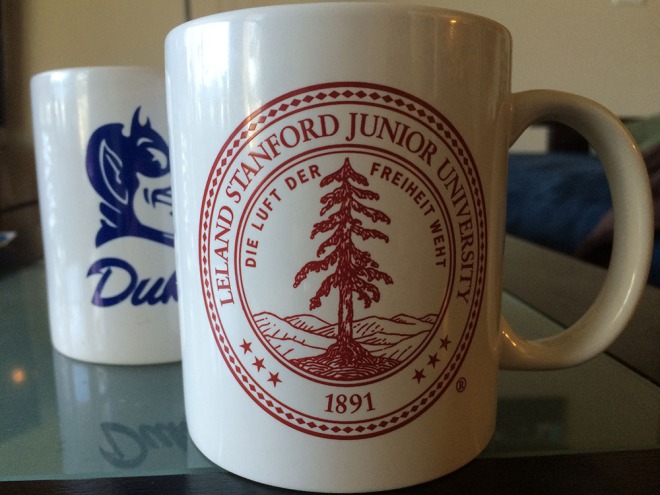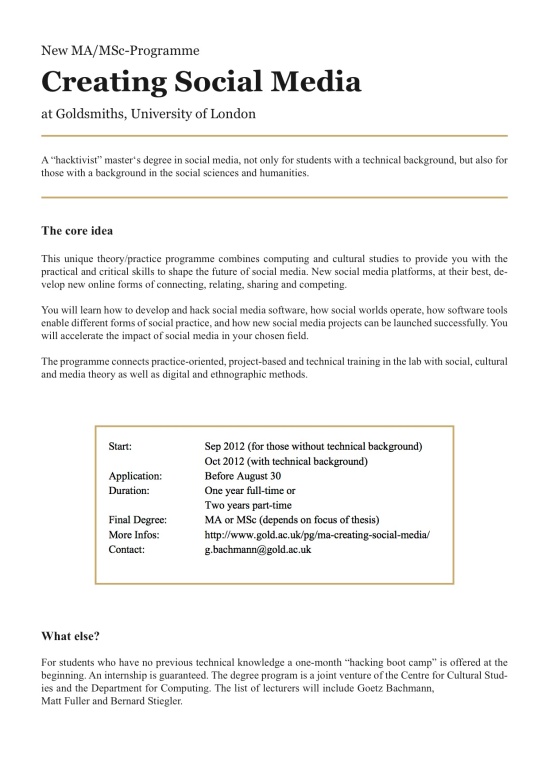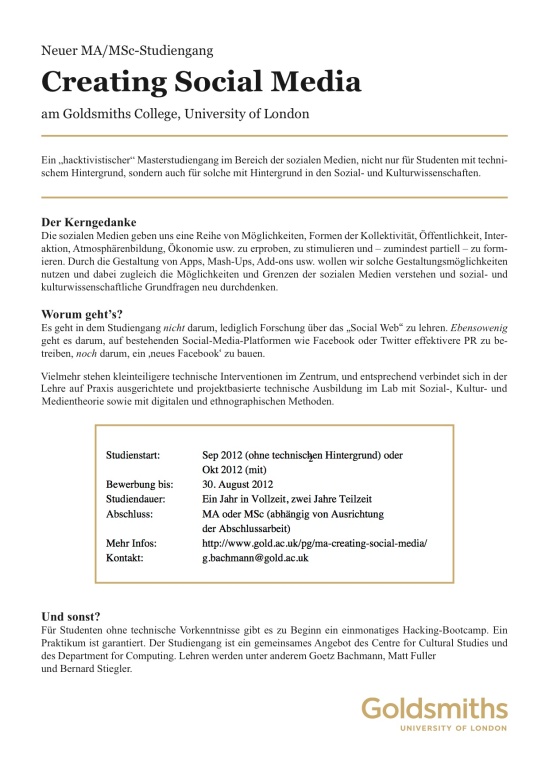Syllabus for the next iteration of my seminar “Post-Cinema” (senior capstone / graduate seminar), Department of Art & Art History, Winter 2017.
Category: Academia
Die Luft der Freiheit weht

It is with great pleasure and much excitement that I am able to announce today that, beginning in the Fall 2016 semester, I will take up a new position as Assistant Professor of Art & Art History (teaching in the Film & Media Program) at Stanford University!
DAAD Postdoctoral Fellowship at Duke University


At long last, I am excited to announce that my application for a 2-year postdoctoral fellowship at Duke University has been approved for funding through the DAAD (German Academic Exchange Service). At Duke, I will be working closely with Mark B. N. Hansen and other scholars of media and culture to develop a media-archaeological perspective on serialization processes in video games and digital media culture more generally. The fellowship, which runs from August 2014 to July 2016, will allow me to conduct archival research in the US that will supplement and expand my work in the project “Digital Seriality” that I co-direct with Andreas Jahn-Sudmann in the context of the DFG Research Unit “Popular Seriality — Aesthetics and Practice.” Needless to say, I am very excited about this, and I will continue to post updates here! More soon…
Creating Social Media
The following info about the Master’s program in “Creating Social Media” reached me recently, and I thought it might be of interest to readers. Note that the deadline for applying is quickly approaching!
What does social media look like in the future? What will you create? At Goldsmiths, University of London, we offer an MA/MSc in Creating Social Media that provides students with practical and critical skills to shape the future of social media. The MA/MSc is a collaborative theory/practice programme across the Centre for Cultural Studies and the Department of Computing.
Based on global examples, we explore the technological and intellectual questions that have risen to prominence with the social web. We critique existing approaches and tools, and plan, develop, hack and implement new applications and campaigns. We not only analyse: we create.
New social media platforms, at their best, develop new online forms of connecting, relating, sharing and organising. Effective and innovative social media creation, therefore, involves deep theoretical and practical knowledge of both software development and social processes. Participants in the MA/MSc will become proficient in
– Computing skills in software development for new social media platforms, mashups, apps, and tools.
– This includes both coding and data skills, and a hacker approach
– Students with non technical background are brought up to speed with a specially developed bootcamp– Theories of social processes and methods to research them.
– Adapting social media to a variety of technological contexts and to the needs of specific communities.
– Creating social media interventions that address social processes in new ways.– Surfacing the assumptions and limitations embedded in software.
– Critically assessing contemporary discourses about social media and change.
– Building software tools that enable different forms of social practice, and launching them successfully.The course draws together students from all around the globe, and from a wide spectrum, some with a technical background, and others whose main focus has been communications, culture, society or politics. We accept applicants until August 31 – but best apply as soon as possible.
Start: Sep 2012 (for those without technical background) or Oct 2012 (with)
Apply by: August 30 2012 latest
Duration: 1 Year full-time or 2 years part-time
Final Degree: MA or MSc (depends on focus of the thesis)
Website: http://www.gold.ac.uk/pg/ma-creating-social-media/
Contact: g.bachmann@gold.ac.uk

